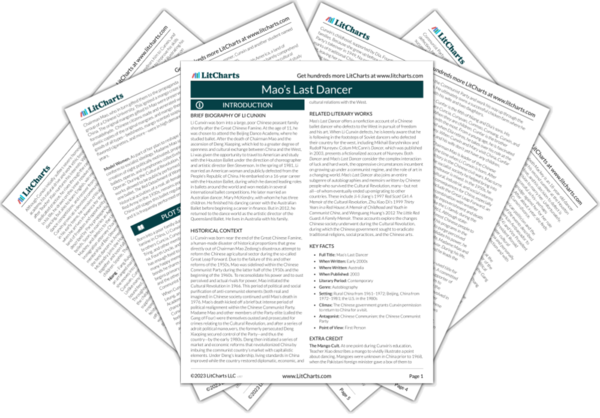With
Charles Foster serving as best man,
Cunxin and
Mary get married in the small Catholic chapel where Cunxin was baptized. They host a reception on the lawn of the new house they’ve just bought together, and then they honeymoon in Acapulco, Mexico. When they return to Houston, they throw themselves back into dancing, and their reputations grow by leaps and bounds.
Ben and other choreographers design ballets specifically to highlight their talents. Cunxin gets to work with a famous, exacting choreographer, who pushes him to new heights of excellence. The performance that moves Cunxin the most, however, is playing Romeo in Ben’s newly designed
Romeo and Juliet. At this stage of his career, Cunxin doesn’t just want to be a technically proficient dancer—he wants to be creative, emotionally powerful, and artistically mature, as well. He wants to reach the level of his heroes.
